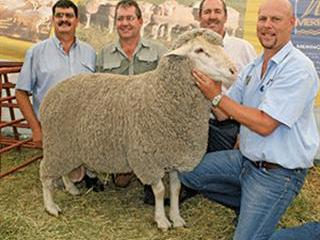The recommendations made by the Competition Commission after its inquiry into bank charges doesn’t mean consumers can expect to pay less for banking services any time soon. Ernst Janovsky gives advice on how farmers can cut banking costs.
The recommendations made by the Competition Commission after its inquiry into bank charges doesn’t mean consumers can expect to pay less for banking services any time soon. The commission published a 35-page executive summary of its findings and recommendations in June last year, and the comprehensive 600-page bank report was published in December.
Some of the recommendations include a limit on the penalty fees that may be charged for rejected debit orders, a direct cost system indicating to clients what the cost of a specific ATM-transaction will be and the expansion of access to the national payment, in which debit and credit cards are used, to other parties than only the banks.
Analysts warned that although the report will lead to changes in bank charges, they won’t happen soon as changes to regulations and legislation are needed. Furthermore, not all changes will lead to lower bank charges for consumers. Banks have also warned that some of the commission’s recommendations are not practicable and could be quite costly.
Banks and the commission were left red-faced after the bank report, in which sensitive information from the banks was censored in accordance with an agreement with the commission, appeared uncensored on the website wikileaks.com.
Among other things the censored information revealed that the four major banks made R11,4 billion, or 8% of their total non-interest income, from service charges in 2006.
Ernst Janovsky, head of Absa Agribusiness, said the right banking package differs in every case, and farmers require negotiation skills and a good knowledge of their own affairs to get the best package – Drieka Burger
What can farmers do to cut costs?
The most important thing to remember is that banking packages are negotiable, says Ernst Janovsky, head of Absa Agribusiness. It’s important for farmers to choose the right package. “Each farming business is different and farmers should understand their own banking needs to negotiate the best deal for themselves,” he said.
Janovsky said farmers should consider the following when looking for the best deal in terms of banking service and charges:
- Farming operations that receive a lot of cash deposits should negotiate for a package with cheaper cash-handling fees.
- Try to use fewer cheques and more electronic payments.
- Farmers who still need to do a lot of their transactions in cash, like paying wages, should consider whether drawing money from an ATM or drawing it over the counter is most cost-effective.
- Consider the cost of capital. If farmers lowers their risk profile, they can save a lot on interest charges.
- Farmers should also reconsider their overdraft limits. If you have a limit of R20 million, but you only use R1 million, you are still paying for the availability of the rest of the money. By making better use of an overdraft facility, or reducing it, farmers can save money.
- Use short-term or long-term loans for the right purposes. Don’t use your overdraft facility to buy a car – rather get a medium term loan.
- Rather get a long-term loan when buying a farm, as the rates will be much lower.









